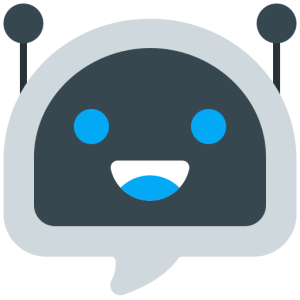1 Introduction
From Search to Source: Finding Reliable Information is a resource designed to support students throughout their learning journey at Southern Cross University. This book scaffolds students from basic search techniques to a more advanced understanding of how to structure, explore, and apply search strategies and frameworks to locate and evaluate reliable, relevant information. The content of this book aligns with the principles of the Southern Cross Model with media-rich, interactive online components for self-directed learning with easy, intuitive navigation.
Chapter 2, Where to find information, is a guide on how and where to source relevant information throughout your studies. Specifically searching the Library Catalogue, Library Databases, Google and Google Scholar.
Chapter 3, A guide to information resources, provides an overview of various academic resources, helping you understand their uses, advantages, limitations, and how to effectively search for them to support your research and assignments.
Chapter 4, Search strategies, advises on effective research techniques, starting with analysing assessment questions and identifying keywords to creating a workable, relevant search string for library catalogues and databases.
Chapter 5, Levels of evidence and searching frameworks, introduces Evidence Based Practice. This chapter outlines how to formulate a clinical question using qualitative frameworks and looks at the advantages and disadvantages of various types of evidence.
Chapter 6, Advanced literature searching, takes a closer look at searching, documenting, and managing results. It covers understanding different types of reviews, mastering advanced search functions, locating grey literature, identifying additional useful publications, and effectively documenting and saving your search history and setting alerts.
Chapter 7, Evaluating the information, focuses on how to evaluate the relevance, reliability, and credibility of academic resources and websites, considering factors like content, source, publication date, and peer review. This chapter also looks at the evaluation process of resources that discuss or include Indigenous Knowledges to ensure that they are appropriate to use in your assessments.
Chapter 8, Referencing, covers the importance of referencing, understanding plagiarism, maintaining Academic Integrity, and correctly citing sources – including using GenAI at university.
 GenAI Tip
GenAI Tip
Each chapter in this resource includes a GenAI tip to help you navigate these tools effectively. Using GenAI responsibly—while upholding Academic Integrity—is essential, as breaches can have serious consequences.
Here are some key points to keep in mind:
- Check assessment guidelines—Make sure GenAI use is permitted for your task by reviewing the SCU GenAI Tool Descriptor [PDF 325KB] and reading the assessment instructions carefully.
- Reference/acknowledge—The Library’s GenAI guide and the Learning Zone’s Quick Guide [PDF 567KB] provide clear advice on referencing and acknowledging GenAI outputs.
- Think critically—Don’t take GenAI outputs at face value—evaluate their credibility and accuracy.
- Fact-check rigorously—Always verify information generated by GenAI.
- Be transparent—Keep clear records of your interactions with GenAI tools and be upfront about your usage.
 Need help?
Need help?
The Library’s home page is the springboard to our services. Here you can find services for study, research, teaching, and borrowing. Use the Get Help page to browse the self-help resources, check out our range of Frequently Asked Questions, and find links to searching the library collections, requesting scans or books, returning items, and view the campus library opening hours.
Start a conversation with Library staff using the yellow chat bubble on the bottom right of your screen on any library webpage. Depending on your query, your question will be answered by a library technician and transferred to a librarian.
For discipline-specific support, visit our Library Guides to learn more about key databases, resources and learning support.
Check our home page or events page for upcoming classes and workshops.
If you still require support, you can make one-on-one appointments with a faculty librarian for assistance with searching scholarly resources for assessments (e.g. peer-reviewed journal articles) or for advice on referencing (please note we do not check reference lists). Please visit the appointment booking page and make your selections.
Watch SCU Library Get help [YouTube 0m57sec].

